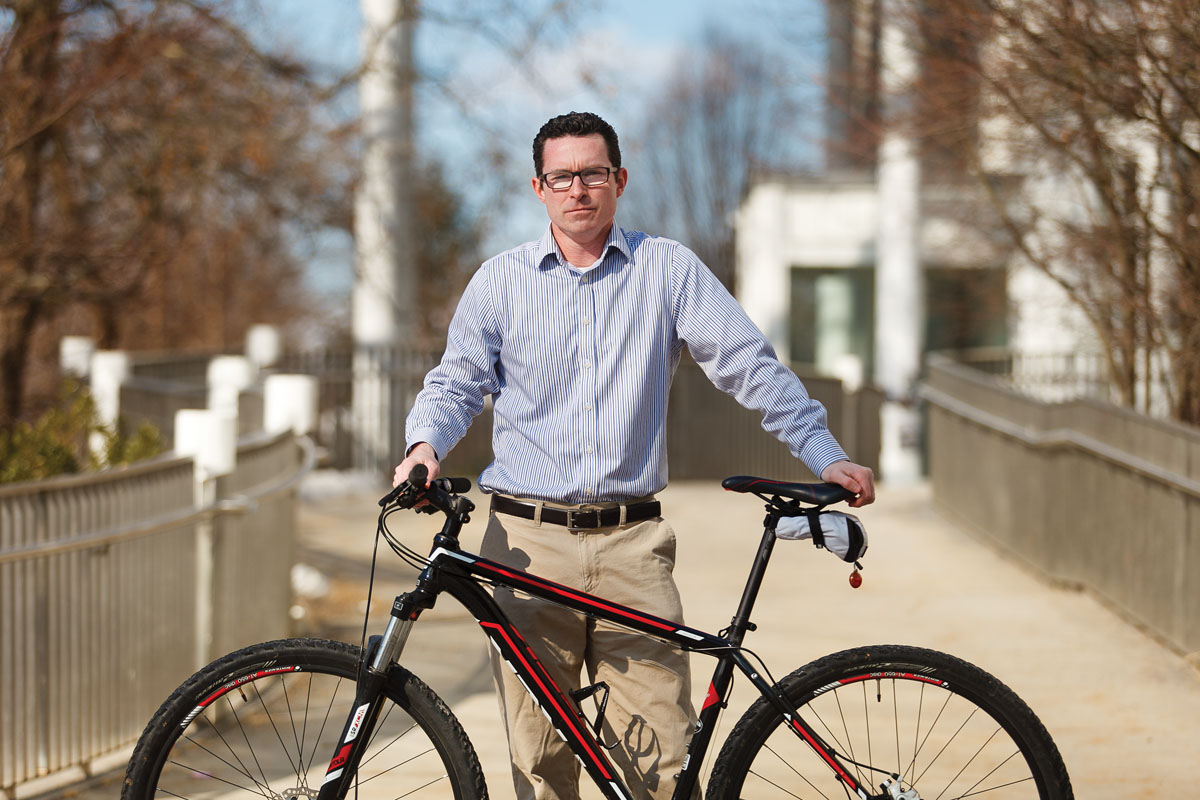Reducing Emissions Through Sustainable Transportation

Dickinson is committed to creating options for sustainable transportation in and around campus. Our Climate Action Task Force addressed the issue of transportation directly, and created excellent recommendations for pursuit over the next few years. However, Dickinson has already made great progress in the following areas of sustainable transportation:
Biking @ Dickinson:
The Center for Sustainability Education, guided by Dickinson's Bicycle Advisory Committee works to create sustainable biking options through bike share (daily & long-term), convenient bike racks, long-term indoor bike storage, a biking listserve, Biking @ Dickinson blog and The Handlebar. Check out the Dickinson Biking program to learn more. We love bikes, and want to help you love them too.
Commuter Services of Pennsylvania:
Commuter Services of PA provides free transportation opportunities for all Dickinsonians! Programs include carpooling and vanpooling, emergency ride home, and bicycling and safe-walk commuting to campus. Commuter Services of PA is a professionally staffed organization funded by Federal Congestion Mitigation & Air Quality funds. Through their free services, they work to reduce traffic congestion by helping commuters find alternatives to driving alone. Using these alternative options also helps improve air quality, and fewer cars in rush hour can mean safer highways, too.
Capital Region Commuter Routes (CAT Bus):
Designed with the commuter in mind– RabbitTransit Capital Region offers Commuter Route service, which operates multiple round trips on weekdays between Shippensburg and Harrisburg, between Carlisle and Harrisburg, and between Upper Dauphin County and Harrisburg. Free WiFi on board makes it possible to be productive while sitting in traffic while the Emergency Ride Home Program gives you piece of mind. Relax and enjoy the ride!
Vehicular Transportation:
Dickinson College worked with the Carlisle Borough and other members of the community to study transportation problems in Carlisle. The study resulted in a $2.8 million "Road Diet" being funded and implemented by PennDOT. The Road Diet has alleviated some traffic issues and made Carlisle more pedestrian and bicycle friendly by reducing High and Hanover streets from two to one lane in each direction in the downtown core, adding bike lanes, adding turning lanes, and other changes.
Student Development and the Department of Public Safety provide shuttles to and from Harrisburg for major breaks. Remember, any carpool is good for us! When students are on campus, there is an active Safety Shuttle. Check out info on break shuttles offerings and availability on the Department of Public Safety transportation page.
In an effort to reduce carbon emissions in association with the college’s carbon neutrality commitment, the college places a strong preference for fuels that have environmental benefits, while also giving consideration to financial costs. Accordingly, we have adopted a Sustainable Transportation Fuels Policy to be followed whenever possible by all departments utilizing college owned vehicles. The college’s tanks at Facilities Management will also follow this policy.